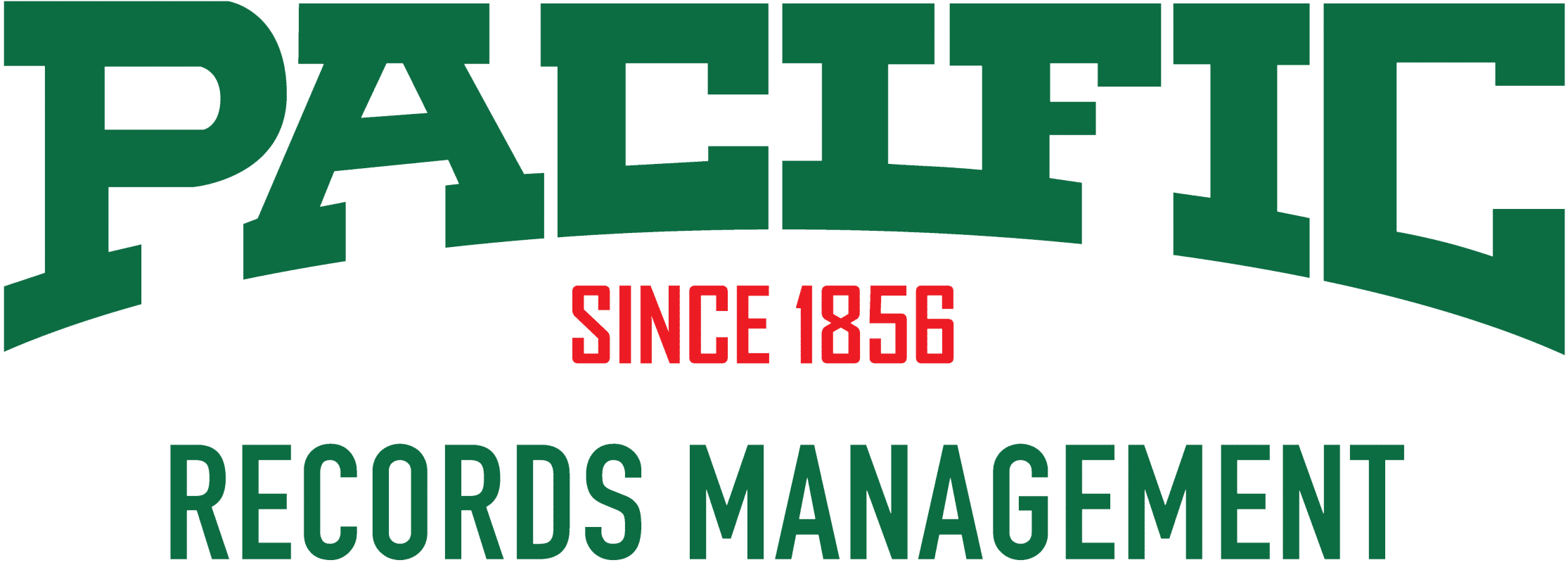Eco-Smart Records Management: Balancing Compliance with Conservation
 In today’s business landscape, sustainability isn’t just a buzzword—it’s a business imperative. From energy-efficient office buildings to paperless workflows, companies across California are discovering that going green doesn’t just help the planet; it helps their bottom line. But when it comes to records management, many organizations face a common misconception: that environmental responsibility and regulatory compliance are mutually exclusive.
In today’s business landscape, sustainability isn’t just a buzzword—it’s a business imperative. From energy-efficient office buildings to paperless workflows, companies across California are discovering that going green doesn’t just help the planet; it helps their bottom line. But when it comes to records management, many organizations face a common misconception: that environmental responsibility and regulatory compliance are mutually exclusive.
The truth is quite the opposite. Smart records management practices can actually enhance both your environmental footprint and your compliance posture simultaneously.
Why Sustainability Matters in Records Management
Traditional records management carries a significant environmental burden that many businesses overlook. Consider the lifecycle of a typical business document: paper production, printing, physical storage in climate-controlled facilities, transportation for retrieval, and eventual disposal. Each step consumes energy and resources while generating waste.
The numbers are staggering. The average office worker uses about 10,000 sheets of paper annually, while a single four-drawer filing cabinet requires approximately 14 cubic feet of storage space that must be heated, cooled, and secured year-round.
Corporate sustainability initiatives are no longer optional for competitive businesses. With 83% of millennials considering a company’s environmental impact when making purchasing decisions, and Environmental, Social, and Governance (ESG) criteria becoming standard in investment decisions, sustainable records practices directly impact business success.
Common Compliance Challenges That Complicate Sustainability
Records compliance creates legitimate concerns about adopting greener practices. Key regulations like HIPAA for healthcare, GLBA for financial services, and SOX for public companies mandate specific retention schedules, secure destruction protocols, and detailed audit trails.
These requirements often lead organizations to default to paper-heavy processes out of caution. The fear of non-compliance drives decision-making toward seemingly “safer” traditional methods, even when digital alternatives might offer superior security and environmental benefits.
However, this approach misses a crucial point: proper records management can strengthen compliance while reducing environmental impact.
Eco-Friendly Strategies That Enhance Compliance
Digital Transformation Done Right
Converting physical records to digital formats offers the most significant opportunity for environmental improvement. Professional document scanning creates searchable, instantly accessible files while eliminating ongoing storage costs and environmental impact.
Modern digital archives provide superior audit trails compared to physical files. Every access, modification, and retrieval gets automatically logged with timestamps and user identification. This level of documentation often exceeds what’s possible with paper-based systems.
Cloud-based storage solutions offer additional advantages, including automatic backups, geographic redundancy, and energy-efficient data centers that operate at scale far more efficiently than individual file rooms.
Sustainable Destruction Practices
When records reach the end of their retention period, secure destruction becomes both a compliance requirement and an environmental opportunity. NAID AAA Certified destruction processes ensure complete security while enabling 100% recycling of shredded materials.
Chain of custody documentation satisfies regulatory requirements while supporting corporate sustainability reporting. Every pound of securely destroyed documents represents both compliance achievement and environmental benefit.
Energy-Efficient Storage Solutions
For records requiring physical storage, modern facilities incorporate energy-efficient design, optimal space utilization, and environmental controls that minimize power consumption while maintaining preservation standards.
LEED-certified storage facilities demonstrate measurable environmental benefits without compromising security or compliance. These facilities often achieve 30-40% energy savings compared to traditional storage approaches.
Policy Integration
The most successful eco-smart programs embed sustainability into existing records policies rather than treating it as an add-on. Records retention schedules can specify digital-first workflows while maintaining all required compliance elements.
Staff training programs can emphasize both compliance requirements and environmental benefits, creating a culture where sustainability supports rather than conflicts with regulatory obligations.
Practical Implementation Steps
Starting your eco-smart records journey doesn’t require a complete system overhaul. Begin with a comprehensive audit of current processes to identify opportunities where environmental improvements align with compliance goals.
Consider implementing digital-first policies for new documents while gradually converting legacy materials through systematic scanning projects. This phased approach allows you to validate processes and train staff while maintaining all compliance requirements.
Partnership selection proves crucial for success. Choose records management providers that demonstrate both environmental commitment and compliance expertise. Look for certifications like NAID AAA for security and measurable sustainability practices.
The Business Case for Balance
Eco-smart records management delivers measurable benefits beyond environmental impact. Organizations typically see reduced storage costs, faster document retrieval, improved disaster recovery capabilities, and enhanced compliance documentation.
The cost savings often prove substantial. Digital storage costs continue declining while physical storage expenses increase annually. Most businesses recover their digital conversion investment within two years through reduced storage and operational costs.
Don’t let compliance concerns prevent your organization from achieving environmental goals. The most successful California businesses understand that sustainability and security work together, not against each other.
Ready to explore how your organization can balance compliance with conservation? Call Pacific Records at (800) 685-9034 or complete the form on this page today to discuss eco-smart strategies tailored to your specific industry requirements and regulatory obligations.
